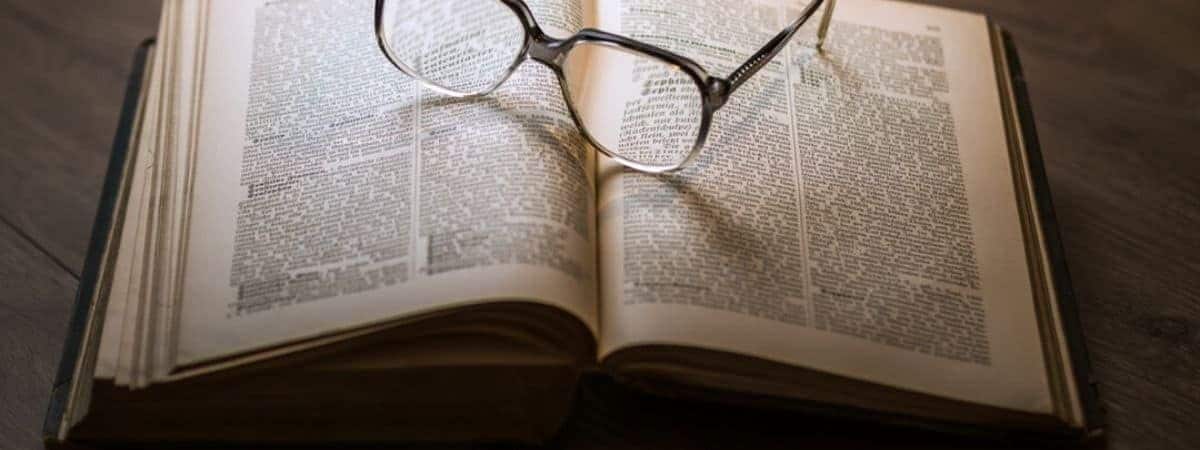a

April 2024
Discounted Gift Trust in April 2024
Estate planning is an important aspect of safeguarding the inheritance you can pass on to your children and loved ones. One of the main attractions of this kind of trust arrangement is that you are able to make an investment but you are still able to access your investment.
Topics that you will find covered on this page
You can listen to an audio recording of this page below.
What is a discounted gift trust?
This is where you gift a sum of money into the trust, but you get an income from the trust for the rest of your life. This trust is normally linked to an offshore or onshore investment bond.
Here is a video that explains more about discounted gift trusts.
What are trust funds?
A trust is where a person, called the settlor, puts their assets into a fund which is maintained by trustees on behalf of another group, who are the beneficiaries. When your assets are in the trust, they are not considered part of your estate, they belong to the trust.
Why are trusts good for inheritance tax?
You might have heard of Inheritance tax referred to as the ‘voluntary tax’ by accountants. This is because trusts can be used so that your money stops being part of your estate, so when your estate is assessed for inheritance tax, it will not be considered.
What are the merits of discounted gift trusts?
There are multiple purposes for getting this type of trust, including:
-
- Reducing IHT on your estate immediately
- You can get either a discretionary or fixed absolute trusts
- You can choose from a variety of investment options
- The income from the trust can be useful for making gifts
- If a discretionary trust is used, there will not be any exit charges, regardless of the nil-rate band. Periodic charges will be based on the investment bond, subtracting any discount. If this is less than the nil rate band then there will not be a need to pay periodic tax.
What are the problems with a discounted gift trust?
There are difficulties including:
- They are not flexible trusts, and the level of withdrawal cannot be changed until death. If the settlor does not take the withdrawal this might impact the IHT treatment
- You need sufficient capital to invest at the outset
- The settlor cannot surrender the bond until their death
- Income tax might be charged after 20 years worth of 5% withdrawals by the client
- The size of the withdrawal might not be enough after time has passed due to inflation or a change in lifestyle
- The discounts vary depending on being in reasonable health and lifestyle of the settlor
Does HMRC approve this type of trust fund?
HMRC are aware of this type of trust and the discounts and have not challenged their practice.
How does the discount work?
If the settlor is reasonably healthy, then the amount of income that they will get back from the trustees will be calculated by the provider. This is called the bag of rights. The bag of rights, which is called the discount, is considered to be kept by the settlor.
What is the tax impact of the bag of rights?
The remainder after the discount is seen as any gift into a trust. Therefore if it is a discretionary trust, this is a chargeable lifetime transfer and if it is a bare trust, then it is a potentially exempt transfer.

What is the 7-year rule?
The 7-year inheritance tax rule is where if you make a gift of under a certain amount, and then you live 7 more years, you do not have to pay inheritance tax. If the person passes away within 7 years, there is a sliding scale of inheritance tax, from 0-40%, which is called taper relief.
What if the settlor or the settlors die within 7 years?
The bag of rights should technically be returned to the personal representatives. However, generally what HMRC does is that the right to trust income for life is not worth anything once the settlor passes away.
As a result, no money needs to be returned. This means that the discount goes out of the estate once the money goes into the trust, and the rest is dealt with like any gift, and goes back into the calculations.
"A trust is where a person, called the settlor, puts their assets into a fund which is maintained by trustees on behalf of another group, who are the beneficiaries."
Help & Advice Tweet
What does this mean for IHT?
The result is that when the discounted gift trust is created, there is an immediate IHT reduction. Therefore you can draw income during your life then leave the rest to their beneficiaries, and they will have to pay less inheritance tax.
What is the IHT for a discretionary trust?
Beyond the tax on the chargeable transfers, for a discretionary trust there might be periodic charges on every 10 year anniversary of the trust.
How is the income calculated?
The organisation providing the trust will medically underwrite the settlor. They will try and work out their life expectancy based on how healthy they are and the lifestyle they live. They use this to work out the market value of the future capital payments being provided to the settlor. This is basically the capital that a person would pay to get the regular payments.

Who will have a higher income stream?
Settlors who are young and healthy are more likely to live for a long time, so the future payments are more likely to continue for a long time. If the settlor is not as healthy or older, the income payments won’t go on for as long, so the market value is worth less and there won’t be as much as a discount.
Who provides discounted gift trusts?
Most large life assurance companies can provide these trusts. They can be both onshore bonds or offshore bonds.
How do I choose the right provider?
The discount calculation depends on the method the provider uses to work out their medical underwriting. They can consider lots of different things, like mortality, costs, future interest rates and the costs involved. Your financial adviser can consult different trusts providers.
Who are fixed absolute discounted gift trusts for?
These are for clients who know how they want the capital to be distributed amongst pre-selected beneficiaries. This is for clients who want to optimise potentially exempt transfers.
Who are discretionary gift trusts for?
This is best for clients who want to be able to change the beneficiaries during their lifetime and decide later how capital should be divided between the beneficiaries.
What is a settlor’s fund?
There are two aspects to this trust fund. The settlor’s fund is just for the settlor, and refers to the regular capital payments. This is part of the settlor’s taxable estate, even though inheritance tax is not payable when the settlor dies because there will not be right to income anymore.
What is the beneficiaries’ fund?
This is all of the rest of the fund. It is the capital held on trust for the beneficiaries, who are the people who will benefit after the settlor dies. The amount they get will depend on how well the investment does.

Who are discounted gift trusts good for?
This type of arrangement is suitable for people who want to get regular payments from the trust that they will spend and want to also take inheritance tax planning steps. You should be likely to live for at least seven more years, and be in reasonably good health.
Who are discounted gift trusts not good for?
To get the full benefit from the gift, you need to be under the age of 90 and not in adverse health. You should also be unlikely to have inheritance tax liability and be sure that you want to get withdrawal payments. They are not for people who want flexibility in when they get their allowance, or do not have the wealth available to invest at the creation of the trust.
What are the differences between single and joint settlor trusts?
Where there is a single settlor, the payment into the trust fund must come just from one person, if there is a joint settlor arrangement, the payment has to come from two people, like from a joint bank account.
How can I go about making a discounted gift trust?
You should get professional advice to help you decide if you should set up a discretionary trust or an absolute trust. A professional can aid you in drafting a trust deed suited to your needs.
What are the stages in setting up a trust?
Normally the trust has to use new monies. You will need to complete an application form that includes your health details.
What date is used for setting up a trust?
Where you have chosen a discretionary trust, usually the date of the trust and the bond have the same date. Where you have chosen an absolute trust, the trust deed will not state a date, and it will be inserted once the policy is issued. However each insurance company might have different rules.
Can the settlor get the capital in the trust?
The settlor is not entitled to the initial capital, they are only entitled to the income. The income requires there being enough income left in the capital.
Can the settlor get a benefit under the trust?
The settlor cannot get a benefit from the trust. The settlor might be able to get some access to the funds without it being an inheritance tax issue. These rights must be what is called carved out, which means predetermined at the inception of the trust. They are not gifted, so the rules on gifts without reservation are not relevant.
How often are the payments?
The settlor decides how often they will get the capital payments and how much they should be. They normally act as a supplement to the settlor’s income.
What do the beneficiaries of the trust get?
Trustees are responsible for how much the beneficiaries get. The trustees can give a trust beneficiary a sum to help with emergency situations while the settlor is still alive. This can be difficult from a tax perspective, so a professional should help with this. The trustees decide what to do with the fund after the settlor dies.
Can the settlor’s spouse be a beneficiary?
If the spouse is not a settlor too, then making a spouse a beneficiary does not count as a gift without reservation. However, caution should be exercised if gifts are made before the death of the settlor, because the funds should not be used as a direct or indirect benefit of the settlor themself.
Can you change the level of withdrawal?
You should work out the preselected payment stream when you set up the trust. When you make the trust you can put in place regular fixed increases in the income. However, once you decide on a regular payment stream, you cannot change the income as otherwise, it might impact the inheritance tax discounts.
Can the settlor make more gifts?
The settlor cannot give up on the payments, but they could give the money from the payment to someone else. The settlor can waive their entitlement to the trust by telling the trustees. To do this, it is a good idea to consult financial advisers.

What type of investments are used?
The trust could be invested in a variety of types of investment schemes like shares in an OEIC rather than a bond. However, if they do this, any income from the investments means that the settlor will be assessed for income tax because the settlor still has the right to capital payments. This is not an issue with a life insurance bond, because they do not produce income and the earnings do not attract capital gains tax.
Why is an investment bond used?
This has the structure so regular withdrawals can be made without meaning that tax has to be paid.
How does the trust impact probate?
The legal ownership of the bond should be with someone who is not the settlor, namely the trustees. It is therefore important that at least one of the trustees lives longer than the settlor so the trust is not part of probate.
Article author

Katy Davies
I am a keen reader and writer and have been helping to write and produce the legal content for the site since the launch. I studied for a law degree at Manchester University and I use that theoretical experience, as well as my practical experience as a solicitor, to help produce legal content which I hope you find helpful.
Outside of work, I love the snow and am a keen snowboarder. Most winters you will see me trying to get away for long weekends to the slopes in Switzerland or France.
Email – [email protected]
LinkedIn – Connect with me
Learn about different types of Trusts that could also help you

Property Protection Trusts
This is a trust you put in your will so that the surviving spouse can continue living in your property, but the deceased’s share of the property is kept separate.

Interest in Possession Trusts
This is a trust where the trustee must give all the trust income to a beneficiary as the income is generated, except for trust expenses.

Inheritance Tax Planning Trusts
By putting your money and property into a trust, you can maximize your tax-free allowance and reduce the amount of inheritance tax you pay.

Life Interest Trusts
A life interest trust is a trust written into a will. This means that the trustees hold the assets in the trust on behalf of the beneficiaries. Read more about them.

Asset Protection Trusts
The benefits can include reducing the care fees payable to the local authority and have tax advantages.

Home Protection Trusts
Protecting assets in a trust is a good option for wealth management and getting control over who inherits from your estate.

Inheritance Protection Trusts
The term ‘inheritance protection trust’ could describe many different types of beneficiary trusts. However, it usually refers to a trust for healthy, capable beneficiaries in a will.

Family Protection Trusts
A family protection trust is a method you can use to ring-fence your assets from taxation, care fees, and other risks to your estate.

Estate Planning & Trusts
Estate planning involves considering what to do with a person’s money and assets after they are deceased.
Frequently Asked Questions
What is a discounted gift trust?
This is where you gift a sum of money into the trust, but you get an income from the trust for the rest of your life. This trust is normally linked to an offshore or onshore investment bond.
What are trust funds?
A trust is where a person, called the settlor, puts their assets into a fund which is maintained by trustees on behalf of another group, who are the beneficiaries. When your assets are in the trust, they are not considered part of your estate, they belong to the trust.
What is the tax impact of the bag of rights?
The remainder after the discount is seen as any gift into a trust. Therefore if it is a discretionary trust, this is a chargeable lifetime transfer and if it is a bare trust, then it is a potentially exempt transfer.
What is the 7-year rule?
The 7-year inheritance tax rule is where if you make a gift of under a certain amount, and then you live 7 more years, you do not have to pay inheritance tax. If the person passes away within 7 years, there is a sliding scale of inheritance tax, from 0-40%, which is called taper relief.

